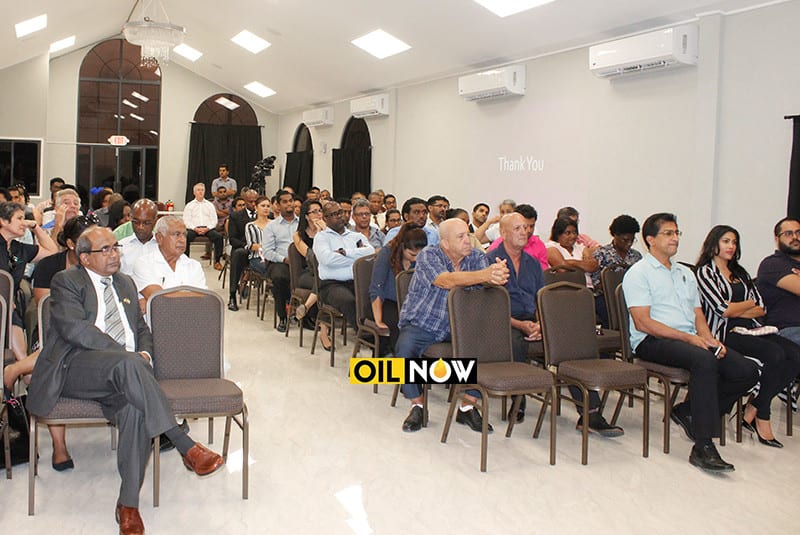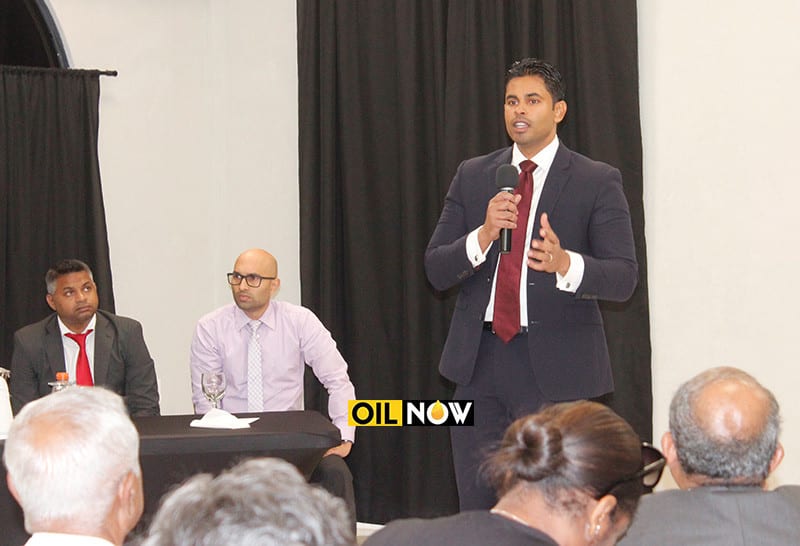A former Member of Parliament (MP) in Guyana believes that political partisanship poses the greatest threat to the establishment and effective management of a Sovereign Wealth Fund (SWF) in the soon-to-be oil producing South American country.
Delivering a presentation on the SWF on Wednesday evening in Georgetown, Attorney-at-Law and Oil & Gas Consultant, Charles Ramson Jr. said the only way to guarantee full accountability, transparency and effective administration of the fund is through a bi-partisan approach at the level of the country’s Parliament.
Using the case study of Paupa New Guinea, the Attorney-at-Law said gross mismanagement of its SWF and removal of a 20% cap on withdrawals resulted in the total collapse of the fund in 1999. “Starting in 1998, the withdrawals began to exceed the payments into the fund. By 1999, just one year later, the fund was empty,” he said, adding, “Most viewed the decline of this fund as a failure of governance and mismanagement and waste.”
To avert this, the former MP recommends the establishment of a bi-partisan group comprising six Parliamentarians; three from each side of the House that will focus on the SWF. “Each team should be supported by a technical person, and they will be able to take all the briefings, the overseas trips etc., so they make sovereign wealth fund their focus. They have the responsibility to brief their party, their constituents…and engage with the public and report that feedback.”
Ramson Jr. said this is particularly important because it will allow Guyanese to have a say in how oil revenue is spent. “If we don’t have a say and relinquish (that input) to either technical persons overseas or maybe persons who don’t have our best interest at heart, then all of that will go to waste and be squandered, as it has in many countries,” he stressed.

Transparency International (TI) said in a report examining the period 2007-2017 that Papua New Guinea had become a land of lost opportunity with poor governance preventing the nation from reaching its full potential to enable growth, peace and prosperity for its 8 million people. The improper use of public funding and resources by individuals and state agencies and the lack of accountability and transparency in major government-funded projects have created an air of uncertainty and enabled a conducive environment for improper conduct, TI said.
With a history of corruption and lack of accountability and transparency at the level of government over the years, Guyana’s management of the windfall expected from oil production has become a major concern for its citizens.
Ramson Jr. emphasized throughout his 1-hour presentation the vital importance of setting up a wealth fund and how it can be effectively managed through prudent investments and smart spending.
Guyana is expected to receive around 7 billion US dollars – which is equivalent to more than 1.4 trillion Guyana dollars – over the lifetime of the Liza Phase 1 project. Already, the operator, ExxonMobil Guyana, is putting systems in place for multiple phases of development offshore that would see the country’s daily production reaching around 500,000 barrels by 2025, further increasing its take from oil production. Projections from independent analysts have been even more generous, with Norway-based Rystad Energy predicting the country’s daily oil production will exceed 600,000 barrels over the next decade, generating billions of dollars in revenue for the country.
The well-attended presentation was organised by the Georgetown Chamber of Commerce and Industry (GCCI). Deodat Indar, the Chamber’s President, said the business group intends to stage a number of these discussions covering key topics in the country’s emerging petroleum industry, over the coming months.



